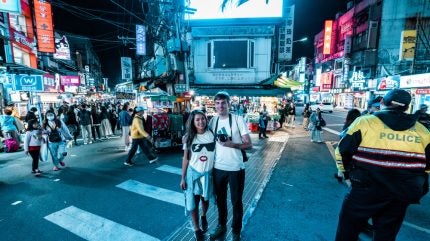
A recent survey by Taiwan’s Tourism Administration reveals that 85% of international visitors include night markets in their travel plans, underscoring their central role in the island’s tourism appeal.
This trend highlights a shift towards experiential travel, where cultural immersion and local cuisine take precedence over traditional sightseeing.

Discover B2B Marketing That Performs
Combine business intelligence and editorial excellence to reach engaged professionals across 36 leading media platforms.
Night markets: a cultural and culinary hub
Taiwan’s night markets, such as Raohe, Shilin, and Ningxia, are renowned for their vibrant atmosphere and diverse offerings.
Visitors can indulge in local delicacies like bubble tea, oyster omelettes, and stinky tofu, while also exploring a variety of goods and games.
These markets provide a unique glimpse into Taiwanese culture, blending culinary delights with entertainment and shopping.
Shopping and historical sites complement the experience
Beyond night markets, shopping and historical sightseeing remain significant attractions for tourists.

US Tariffs are shifting - will you react or anticipate?
Don’t let policy changes catch you off guard. Stay proactive with real-time data and expert analysis.
By GlobalDataThe survey indicates that 92% of visitors engage in shopping activities, while 57% explore historical sites.
Notable destinations include Taipei 101, Ximending, and Jiufen, each offering distinct experiences that cater to diverse interests.
Implications for Taiwan’s tourism strategy
The prominence of night markets in tourist itineraries suggests a need for Taiwan’s tourism sector to focus on enhancing these cultural experiences.
Investing in infrastructure, promoting local crafts, and ensuring sustainable practices can further elevate the appeal of night markets. This approach aligns with global trends favouring authentic, culturally rich travel experiences.



